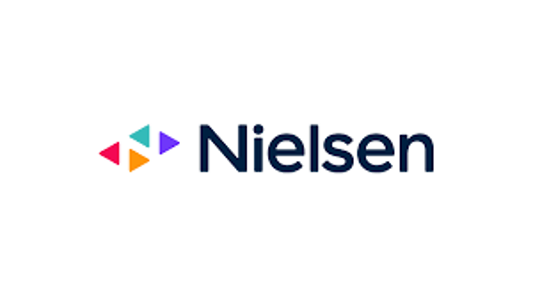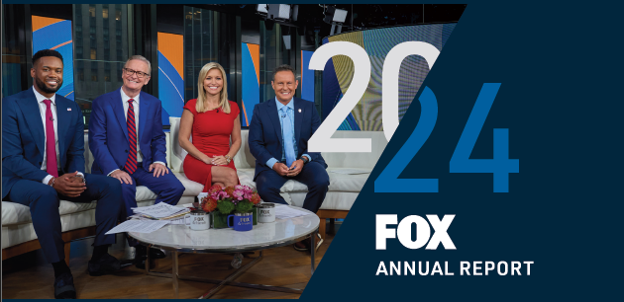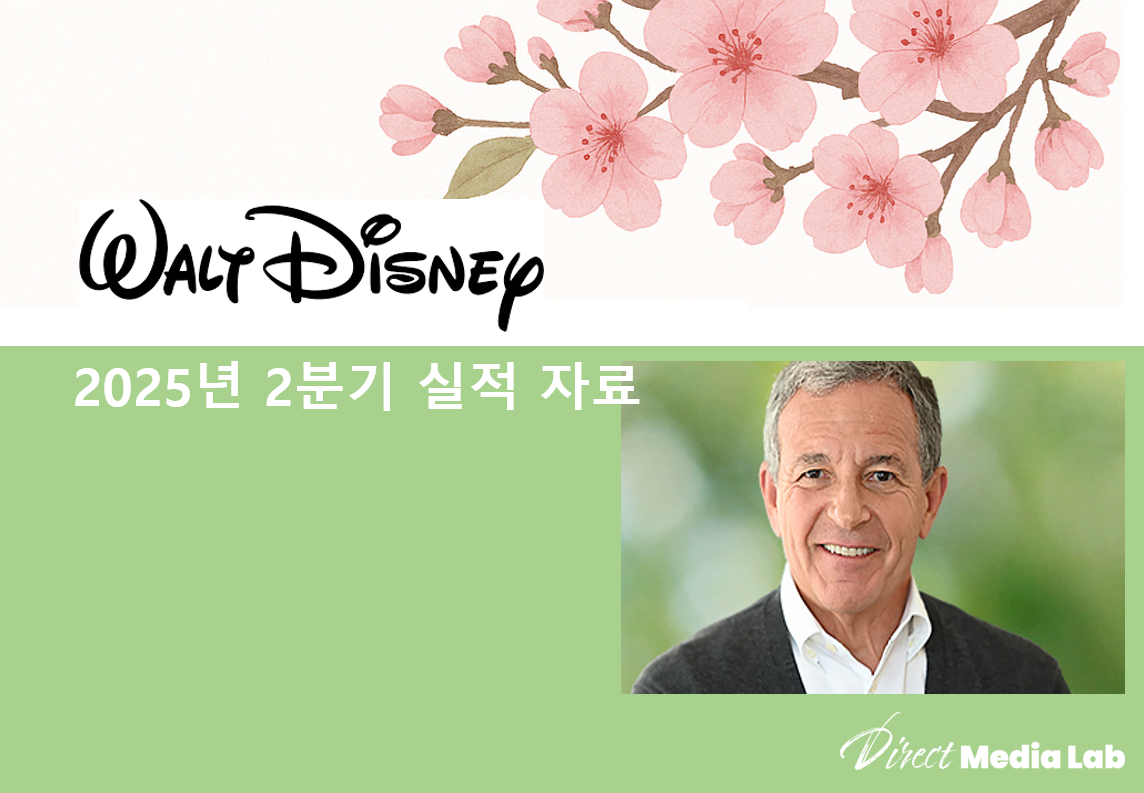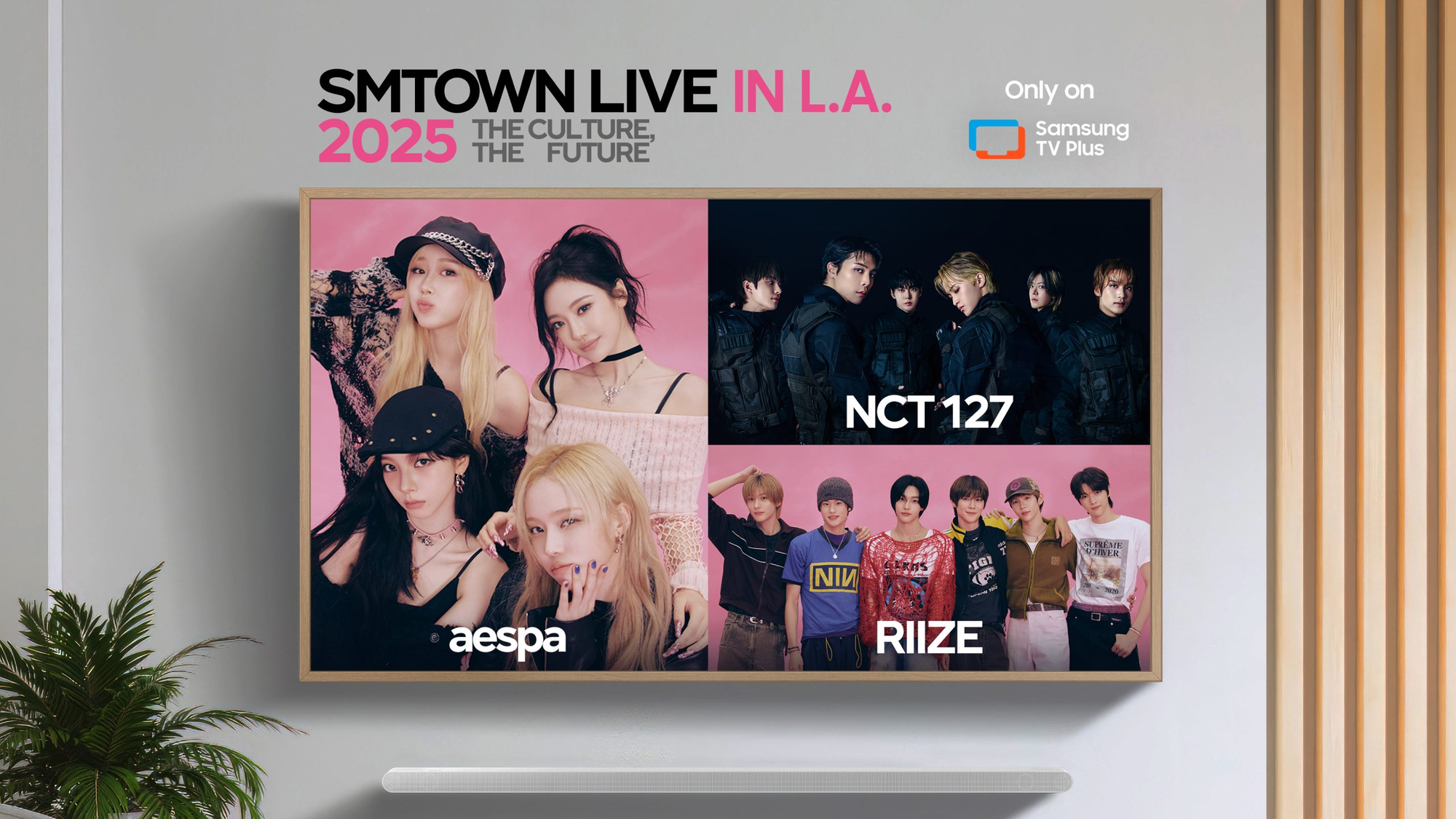(유료 구독자를 위해 인터뷰 비디오 전문이 기사 하단에 첨부되어 있습니다.)
(The full interview video is embedded at the bottom of the article for paid subscribers).
As genAI takes over the world, the AI regulation debate is also heating up. It is being argued that AI, which freely creates images, text, and videos on command, needs some guidelines. AI-generated fake news and deep fakes, which manipulate and replicate original footage, are emerging as social issues.
Global countries such as the US and EU are increasingly regulating AI. The European Union (EU) has been the most active in regulatory discussions. The EU's top regulator has revealed that their guiding principles for AI regulation are "transparency, public interest, and development.
Margrethe Vestager, the European Union's Commissioner for Competition, spoke to press conference from around the world at the EU Tech House at SXSW, where she answered questions on a range of regulatory issues, including the Digital Markets Act (DMA), which came into force in February.
SXSW is the world's largest entertainment and technology festival that pushes boundaries.
She has been nicknamed the "American corporate bogeyman" for her reputation for levying huge fines on American companies. On March 4, the EU fined Apple $2 billion ($2.7 trillion).
It accused the company of blocking consumers from finding cheaper ways to subscribe to rival music streaming services like Spotify outside of Apple's App Store. The first fine against a U.S. big tech company was also led by Vestager, the EU's top competition and digital official.
Vice-President Vestager spent a significant amount of time talking about the direction and progress of AI regulation.
She explained that the final AI legislation is expected to be adopted within a year and will include various safeguards such as watermarks and greater transparency.
On March 14, the European Parliament passed the AI ACT, a first for the global market. Other jurisdictions could also use the new law as a model for their AI regulations, contributing to a wider ripple effect.
It now needs to be formally adopted by member states. The legislation includes AI classification, mandatory watermarks, and more. This interview was conducted before the European Parliament passed the AI bill. However, all the main points of the bill were mentioned
The press interview with the Vice-President of the European Commission was attended by correspondents from Japan, Germany, Sweden, and other countries with a keen interest in EU regulations.
DirectMediaLab was the only Korean new media represented.

생성AI가 전세계를 지배하는 가운데 AI규제 논의도 달아오르고 있다. 주어진 명령에 따라 이미지, 텍스트, 비디오를 자유자재로 만들어 내는 인공지능에 일정 수준 가이드레일이 필요하다는 주장에 힘에 실리고 있는 것이다. AI가 만드는 가짜뉴스, 원본 영상을 조작해 복제하는 딥페이크(Deepfake) 등이 사회 문제로 떠오르고 있다.
미국, EU 등 글로벌 국가들은 AI에 대한 규제 수위를 끌어올리고 있다. 규제 논의가 가장 활발한 지역은 유럽연합(EU)이다. EU의 규제 담당 최고 임원이 자신들의 AI규제 기본 원칙이 ‘투명성, 공익성, 개발’이라고 밝혔다.
마르그레테 베스타게르(Margrethe Vestager) 유럽연합(EU) 경쟁담당 집행위원은 SXSW에서 설치된 ‘EU Tech House’에서 전세계 기자들과 간담회를 갖고 2월 시행에 들어간 디지털 마켓 법안(DMA) 등 규제와 관련한 다양한 이슈에 답했다. SXSW는 경계를 허무는 세계 최대 엔터테인먼트 테크놀로지 축제다.
그녀는 미국 기업에 거액의 과징금을 부과하는 것으로 유명해 ‘미국 기업 저승사자’라는 별칭을 가지고 있다. EU는 3월 4일 애플에 20억 달러(2조 7,000억 원)의 벌금을 매기기도 했다.
소비자들이 스포티파이 등 경쟁 음악 스트리밍 서비스를 애플 앱스토어 밖에 더 저렴한 방식으로 구독할 수 있는 방법을 차단했다는 이유다. 미국 빅테크에 대한 첫 번째 벌금인 역시 EU 경쟁과 디지털 최고 담당자인 베스타게르가 주도했다.
베스타게르 EU집행위 부위원장은 상당 시간을 AI규제에 방향과 진행에 대해 언급했다. 그녀는 AI법안 최종 도입은 1년 안을 고려하고 있고 워터마크, 투명성 제고 등 다양한 안전 장치가 담길 것이라는 설명을 했다. EU의회는 3월 14일 글로벌 시장에서는 처음으로 AI법안(AI ACT)를 통과시켰다.
이제 각 회원국의 공식 절차만 남았다. AI의 등급, 워터마크 의무화 등이 담긴 법안이다. 이 인터뷰는 유럽 의회가 AI법안을 통과시키기 전에 진행됐다. 그러나 법안의 주요 내용은 모두 언급됐다
EU집행위 부위원자의 기자 인터뷰에는 일본, 독일, 스웨덴 등 EU의 규제에 관심이 많은 국가 특파원들이 참석했다. 한국 언론으로는 다이렉트미디어랩이 유일한 참석 미디어였다.
[EU 규제, 최고 수장 SXSW에서 규제 철학 밝혀]
테크놀로지가 주도하는 혁신을 다루는 SXSW에서 베스타게르 EU 집행위원은 빅테크 규제, 디지털 경쟁을 위한 법안들(DMA, DSA), AI규제와 혁신, 틱톡(TikTok)이슈 등을 논의했다. 한국, 스웨덴, 독일 등 10여개 국에서 참여한 기자간담회는 그녀는 ‘EU의 빅테크 규제 철학과 방향, 집행의 중요성을 명확히 이야기’했다.
간담회에서 애플의 과징금에 대한 질문도 나왔다. 베스타게르는 EU집행위원은 “애플 사건은 과거 행위에 대해 벌금을 부과하는 전형적인 반독점 케이스”라며 “꽤 오랫동안 불법 행위가 있었다는 것을 발견했고, 이를 처벌하기 위해 소송을 제기한 것이라고 생각한다”고 말했다.
베스타게르의 임기는 올해(2024년)까지다. 임기를 평가해달라는 질문에 베스타게르는 “(5년 동안) 상황이 엄청나게 변했다”며 “AI의 경우 신중한 입법 절차를 따르면 기술을 규제하고자 마음을 먹었다. 그렇지 않으면 우리는 영원히 뒤진다”고 전했다.

그녀는 EU의 AI규제 법안 도입을 주도하고 있다.
EU의 경우 지난 2023년 6월 AI법안 초안이 가결되어 나왔다. 6월 유럽 본회의 표결에서 이 협상안은 찬성 499표, 반대 28표, 기권 93표로 가결됐다.
이후 유럽은 의회, 행정부 격인 집행위원회와 27개국 대표 이사회 간 3자 협상을 진행했다.
3자 협상은 EU 입법 절차에 따라 새로운 법안 시행이 확정되기 전 거쳐야 하는 관문으로, 행정부 격인 EU 집행위원회가 초안을 발의한 지 2년 만에 AI 규제법 도입을 위한 마지막 절차에 돌입한 셈이다.
[EU, AI법안 통과 "AI모델 잠재적 위험, 규제 당국에 알려야"]
결국 유럽 의회는 2024년 3월 14일 포괄적 AI규제 법안을 통과시켰다. 국제 사회에서는 첫 움직임이다.
의원들은 AI시스템 개발자를 위한 포괄적인 규칙과 기술 사용 방식에 대한 새로운 제한을 명시한 법안을 승인했다. 유럽 의회는 지난해 12월 EU 회원국들과 정치적 합의를 이룬 후 이 법안을 최종 승인하기로 투표한 바 있다.
이 법안은 몇 년에 걸쳐 점진적으로 시행되며 특정 AI 사용을 금지하고, 새로운 투명성 규칙을 도입하는 내용이 골자다. 고위험으로 간주되는 AI 시스템에 대한 위험 평가를 의무화한다.
이 새로운 법안은 모든 범용 AI 모델 제공업체(general-purpose AI models)에 모두 적용될 것으로 보인다. 법안에 따라 범용 AI기업들은 자신들의 모델에 대한 기술문서를 제공해야 한다.
또 모델을 학습시키는 데 사용한 콘텐츠의 요약본을 게시해야 한다. EU에서 '시스템적 위험'이 있다고 간주하는 가장 강력한 AI 모델 제조업체는 해당 모델을 최첨단 안전 평가를 거쳐야 하며, 모델에서 발생하는 심각한 사고에 대해 규제 당국에 알려야 한다. 아울러 잠재적 위험과 사이버 보안 보호를 위한 완화 조치를 시행해야 한다고 법은 명시하고 있다.
법안은 개발 지역에 관계없이 EU 시장의 모든 AI 제품에 적용된다. 이 법안을 어길 경우 기업의 전 세계 매출의 최대 7%에 해당하는 벌금을 부과한다.
이 법의 협상을 주도한 이탈리아 EU 의원 브란도 베니페이(Brando Benifei)는 "AI 법은 안전하고 인간 중심적인 AI 개발을 향한 명확한 길을 제시하는 세계 최초의 규제"라고 강조했다.
법안의 최종 시행은 베스가르드 집행위 부위원장이 언급했듯, 내년 이후에나 가능할 것으로 전망된다.
EU 각 회원국의 최종 승인을 거쳐야 하기 때문이다. 하지만 이미 각 의회가 이 법안에 정치적 지지를 보냈기 때문에 그 과정은 형식적인 절차에 그칠 것으로 예상된다.
이 법은 4억 5,000만 명 유럽인들에게만 적용되지만 파장은 더 넓을 것으로 예상된다. AI규제 법안을 만들고 있는 다른 지역 역시 유럽의 동향을 반영하지 않을 수 없기 때문이다.
[유럽은 매우 매력적인 시장, 삶에 접목되는 기술]
베스타게르 EU집행위원장은 “유럽은인구가 4억 5,000만 명에 달하는 매력적인 시장이다. 유럽인 상당수는 미래 지향적인 성향이 있다”며 “기술을 사용하고 싶고 구매하고 싶어하는 이들은 자신의 삶에 기술이 통합되길 원한다”고 강조했다. 그렇지만, 빅테크에 대한 규제는 촘촘히 진행되고 있다.
그녀는 “우리가 가진 도구가 큰 벌금이다. 상습 위반 기업의 경우 벌금을 두 배로 늘릴 수 있다. 여기에서 더 나아가 회사 해체까지 요구할 수 있다”고 강조했다.
EU가 제정한 디지털 마켓 법안(DMA)는 빅테크 기업들이 시장 지배력을 이용해 점유율을 높이거나 경쟁자해를 끼치기 위해 시장 지위를 남용하는 것을 방지하는 것에 초점이 맞춰져 있다.
법을 위반하는 이른바 ‘게이트 키퍼’(gatekeepers)들은 글로벌 매출의 10%를 벌금으로 내야 한다. 반복적으로 법을 위반할 경우 벌금은 20%로 늘어난다. 이 법안은 미국 빅테크들의 사업 모델을 바꾸도록 하는 새로운 독점금지 조항을 포함하고 있다. 조직적 위반 행위가 확인되면 규제 대상 기업에 문제가 된 사업 부문을 강제 매각하도록 명령할 수 있는 내용도 담겼다.
(참고)0310_EU집행위 부위원장 기자간담회.mp4 - Google Drive(인터뷰 전문)
[AI에도 집행이 가장 중요 “개방형 혁신 시장”이 목표]
빅테크가 유럽에서 직면하는 가장 큰 위기는 불공정 거래 심사다. 애플은 여러모로 유럽 규제 기관의 레이더 안에 있다. 애플은 앱스토어 수수료 관련 에픽게임스(Epic Games)과도 갈등을 빚고 있다.
최근 애플이 수수료를 거부한 에픽게임즈의 개발자 계정을 삭제한 바 있다. 빅테크 기업의 ‘갑질’을 금지하는 유럽연합(EU)의 디지털시장법(DMA) 시행의 타깃이 되고 있다.
그녀는 현장에서 “애플이 대체 앱 장터 설치를 막았다는 에픽게임스의 주장을 자세히 들여다보겠다”며 “DMA에서는 ‘게이트키퍼’의 협박이 통용될 여지가 없다. 담당 부서에 애플의 에픽게임스 개발자 계정 해지를 우선적으로 검토해 달라고 요청했다”고 밝혔다.
3월 6일 인기 게임 ‘포트나이트’ 제작사인 에픽게임스는 “애플이 자사의 유럽 자회사 개발자 계정을 차단했다”고 밝혔다. 회사 측은 애플의 앱 장터인 앱스토어와 경쟁하기 위해 아이폰·아이패드용 자체 앱 마켓(에픽게임스 스토어)을 개발·설치하려 하자 애플이 이를 막으려고 계정을 차단했다며 “DMA는 애플이 에픽게임스 스토어를 허용하도록 의무화하고 있다”고 했다.
자사 앱 장터 외부에서 결제와 다운로드를 허용하겠다고 밝힌 애플이 실제로는 약속을 지키지 않고 있다는 것이다. 애플은 “에픽게임스는 과거부터 현재까지 ‘심각한 계약 의무 위반’을 저질렀고, 이에 따라 애플은 공정한 권리를 행사한 것”이라고 반박했다.
에픽게임스는 2020년 반독점법 위반 혐의로 미국에서 애플을 고소한 바 있다. 에픽게임스가 애플의 앱스토어를 우회할 수 있는 결제 시스템을 개발하자 애플이 앱스토어에서 에픽게임스의 포트나이트를 퇴출시켰다는 것이다. 지난 2024년 1월 미국 대법원은 애플에 앱스토어 외부 결제 시스템을 허용하라고 판결했다.
베스타게르 EU집행위원장은 “우리 규정에 사전 규정 준수 대화(pre compliance dialogue)라는 조항이 있다. 만약 앱을 삭제한다면 그전에 다양한 대체 조치를 취해야 한다는 것이다”며 “웹 기반인 앱은 많은 개발자에게 정말 중요한 앱이었다. 지금은 다시 돌아왔는데 우리도 팀 스위니에게 연락을 취했다”고 설명했다.
특히, 그녀는 “우리가 관심을 두고 있는 것 중 하나는 (앱 마켓)의 수수료 구조”라며 “애플 역시 마찬가지다. DMA 취지에 맞게 수수료가 어떻게 구성될 수 있는지를 살펴보고 있는 것입니다. 따라서 앞으로 몇 주, 몇 달 안에 더 많은 변화가 있을 것으로 예상된다”고 설명했다.
하지만, 개별 기업들의 자율성은 인정해주고 있다. 베스타게르는 “기업마다 규정에 대한 접근 방식이 다르다”며 “다른 기업들은 '우리는 이걸 하지 않겠다'고 말할 수도 있다”고 강조했다. 물론 그럴 경우 규정을 지키지 않은 것이 될 수도 있다.
[DMA법안은 기업에 더 많은 기회를 줄 것]
그녀는 DMA법안은 결국 기업에 시장에 진출 기회를 더 많이 줄 것이라고 설명했다. 그녀는 “이 법안이 혁신과 경쟁을 촉진하는 법안이라고 생각한다”며 “많은 기업이 고객에게 다가갈 수 있는 기회가 더 많아지기 때문에 더 많은 투자자를 확보할 수도 있다”고 강조했다. 결국 그녀는 “법안을 통해 많은 기업들은 정말 많은 이점을 얻을 수 있을 것이라고 본다”고 설명했다. 빅테크가 모든 시장의 질서를 결정하게 두어서는 안된다는 것이 논리다.
베스타게르는 “게이트키퍼 기업으로 지정되면 그들의 진행하는 모든 인수합병을 우리에게 알려야 한다”며 “우리는 그들의 경영 판단이 혁신을 잠식할 위험이 있는지를 판단한다. 이는 시장을 개방적이고 접근 가능한 역동성을 유지하는 데 중요한 부분이기도 하다”고 강조했다. 개방의 중요성은 회견 내내 거듭된 개념이다. 이를 통해 데이터의 투명성과 테크놀로지 산업 내 혁신이 이뤄진다는 것이다. 대규모 온라인 플랫폼의 데이터 접근에 대한 투명성을 요구하고 있다.
[빅테크 규제 위한 글로벌 이해 필요]
EU가 디지털 플랫폼 관련 규제에서는 가장 앞서 있다. 다른 나라들도 유럽의 움직임을 예의 주시하고 있다. 베스타게르의 발언에 관심이 집중되는 이유다.
빅테크 규제를 고민하고 있는 다른 나라들에게 조언을 해달라는 발언에 대해 베스타게르 위원은 “모든 나라가 각자의 다른 입법 환경에 처해 있기 때문에 조언을 하기가 정말 어렵다”고 말하면서도 “그러나 서로 국가에 영감을 줄 수 있는 실질적인 것에 집중해야 한다”고 설명했다. 또” 중요한 것은 국민이나 시민과 소통하는 것이라고 설명했다.
베스타게르 부위원장 “우리가 평등과 건강을 얻으려면 이를 달성하는 데 도움이 되는 AI가 필요하다고 생각한다”며 “좋은 의사는 실제로 환자의 질병을 진단하고 치료법을 찾는 데 있어 탁월한 능력을 발휘할 수 있다”고 강조했다.
소셜 미디어 규제에 대한 질문도 이어졌다. 특히, 최근 무분별하게 후원이나 협찬을 받아 제품을 홍보하는 소셜 미디어의 어떻게 보냐는 궁금증도 나왔다. 미국은 소셜 미디어 서비스 투명성에 관한 FTC 가이드라인이 있고 현재 많은 플랫폼이 이를 따르고 있다.
미국에서 가장 뜨거운 감자인 틱톡 규제에 대한 질문들도 나왔다. 그러나 그녀는 “유럽에서 많은 국가들이 업무용 휴대전화에 틱톡앱을 사용하고 있지 않지만, 금지에 대한 논의들은 나오지 않고 있다”고 설명했다.
[AI규제와 빅테크 규제는 같은 맥락]
(베스타게르 부위원장 인터뷰는 EU의회가 AI법안을 통과시키기 전에 이뤄졌다.)
그녀는 빅테크와 함께 AI규제도 비슷하게 작동할 수 있다고 내다봤다. 베스타게르 EU집행위원은 AI도 빅테크 규제 방정식에 포함하면 된다고 말했다. 새로운 법안이 필요할 수도 있지만 어떠한 법안도 집행이 가장 중요하다고 덧붙였다.
결국 베스타게르는 개방형 혁신 시장을 지향한다고 밝혔다.(truly open innovative market). 그녀는 “투자자, 혁신가, 기업, 규제 당국, 입법자 등 다양한 주체가 참여하는 싸움이기 때문에 여러 주체가 함께 노력해야 한다”고 말했다. 이용자들도 AI에 대한 일정 수준의 규제를 원하고 있다.
베스타게르 부위원장은 AI를 양날의 검으로 봤다 잘 활용하면 매우 긍정적이지만 잘못할 경우 큰 문제가 발생할 수도 있다는 것이다. 그는 “EU AI법안이 실행되면 AI를 활용하지 않으면 할 수 없었던 놀라운 일들을 할 수 있을 것”이라고 답했다.
특히, AI와 관련 딥페이크(Deepfake)와 이용자를 속이는 다크패턴(Dark Pattern)에 대한 규제가 시급하다는 논의들이 이어졌다.
다크패턴은 소비자들의 의도지 않은 클릭을 유도해 수익을 올리는 불법 서비스다. 베스타게르 위원은 “딥페이크와 AI챗봇은 모두 민주주의와 사회를 훼손할 수 있다”며 “하지만, 투명성과 책임성 강화를 통해 이런 위험을 완화해야 한다”고 지적했다.
이와 관련 그녀는 “이런 점에서 AI법에 대한 다양한 의무는 서비스 사회에 진입한 여러분의 의무다”라고 설명했다. 결국 AI시대에도 사람과 사회가 모두 합쳐서 해결해야 한다.
AI 제작물을 구별하기 위해 워터마크의 중요성도 언급됐다. 미국에서는 메타, 틱톡, 구글 등은 콘텐츠 크리에이터에게 동영상에 AI를 사용했지는 알 수 있게, 워터마크 탑재를 필수로하고 있다.
하지만 딥페이크 콘텐츠를 막기 위해 워터마킹의 효과는 제한적인 것으로 밝혀졌다. 그러나 현재로서는 최선일 수 있다. 그녀는 “ 워터마킹(Watermarking) 의무가 있기 때문에 이러한 콘텐츠가 AI의 의해 제공되었다는 것을 알 수 있다”며 “ 소셜 미디어에 대해서도 이런 규제를 도입해야 하는 지를 살펴볼 필요가 있다”고 설명했다.
미국에서도 기존 규제 법안을 AI규제에도 적용해야 한다는 논의들이 나오고 있다.
특히, 사용자 제작이나 외부 콘텐츠로부터 소셜 미디어 등 플랫폼의 면책 조항을 담은 통신품위유지법(DCA)의 섹션230을 생성AI까지 적용되어야 하는지에 대한 논의도 이어지고 있다. AI를 이용해 만든 콘텐츠까지 AI툴이 책임질 경우 AI기술 개발이 위축될 수 있다는 논리다.
AI가 생성하고 인공지능이 수정한 콘텐츠가 온라인에서 확산됨에 따라 미국인들은 기술에 대한 보호 장치를 마련하는 데 규제가 중요하다고 생각하고 있는 것이다.
[이용자들도 AI규제 원해]
실제, 일반 이용자들도 일정 수준의 AI규제를 원하고 있다. 무분별한 AI허용이 사회 안전망을 해친다는 이유다. AI규제는 워터마크 등 AI 개발사들의 자체 규제가 1순위였다.
버라이어티가 해리스X의 의뢰해 정부가 시행할 수 있는 다양한 잠재적 규제를 선택하게 한 결과 개발자에게 AI 결과물에 대한 책임을 묻는 책임 규칙을 만드는 것이 1위를 차지했다(accountability rules that would hold developers responsible for AI outputs topped the list)
EU와 함께 미국은 AI규제를 향해 나아가고 있다. 부시 대통령은 지난 2023년 10월 AI 관련한 행정 명령을 발표했다. 행정명령은 합성 콘텐츠를 탐지하고 '공식'(AI가 생성하지 않은) 콘텐츠를 인증하는 표준 방법을 만들어 AI를 이용한 사기 및 속임수로부터 미국인을 보호하기 위한 조치를 담았다.
또 워터마킹(AI 시스템의 출력물에 암호화 태그 또는 메타데이터를 추가)을 통해 탐지를 활성화해야 한다고 제안했다. 이후 미국 의회도 움직였다. AI레벨링 법안을 발의한 것이다.
AI가 생성한 콘텐츠를 "명확하고 눈에 띄게" 공개하도록 하는 법안이다. AI기술을 리딩하고 있는 기업들은 자발적으로 AI 생성 콘텐츠에 워터마킹 및 라벨을 부착하기로 약속했다.
콘텐츠 크리덴셜 표준을 개발하고 발표한 콘텐츠 출처 및 신뢰성 연합(Coalition for Content Provenance and Authenticity. C2PA)과 AI 생성 이미지를 위한 구글 딥마인드(DeepMind)의 신스ID(SynthID) 등 AI자율 규제도 이어지고 있다.
[유럽 스타트업과 자본을 연결시켜야]
현장에서는 테크놀로지 분야 혁신이 미국에서 대부분 이뤄지고 유럽은 뒤지고 있다는 지적도 제기됐다. 그녀는 “유럽에도 매우 기발하고 활발한 스타트업 현장이 있다.
소규모 유럽 국가들도 혁신에 있어서는 정말 최첨단을 달리고 있다”며 “다만 유럽에서 이러한 비즈니스가 확장할 수 있는 충분한 자본이 아직 부족하다”고 말했다.
이에 그녀는 “유럽에서 투자자를 찾지 못하고 미국에서 투자자를 찾거나 결국 투자자가 미국으로 서비스를 옮겨달라고 요청하는 경우가 종종 발생한다.
이것이 우리의 큰 도전 과제 중 하나라고 생각한다”고 설명했다. 이와 관련 베스타게르 EU집행위 부위원장은 “유럽에도 투자를 원하는 많은 잠재적인 자본이 있다. 이를 연결하는 것도 우리 임무”라고 언급했다.








![[프리미엄 리포트] 미국 케이블TV 2025, 변화와 미래 전략](https://storage.googleapis.com/cdn.media.bluedot.so/bluedot.directmedialab/2025/05/vj931j_202505270106.png)






